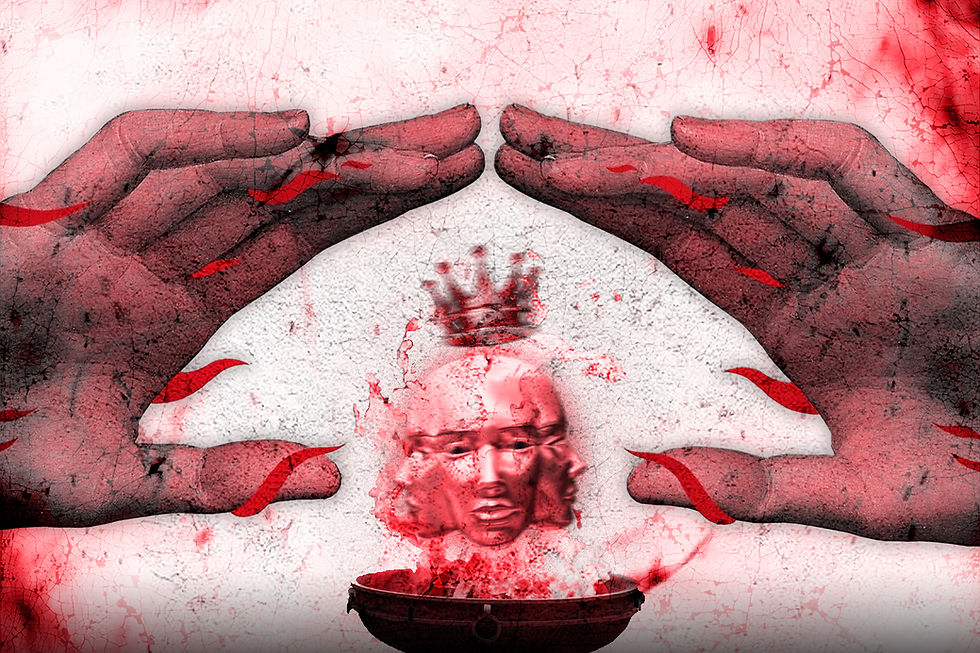Unchallenged, uncontested, unquestioned?
- The Communicator
- Jul 27, 2025
- 3 min read
When does unopposed leadership cease to be a long-standing proof of genuine service? Does it always signify being “proven and tested,” or is it a manifestation of monopolized control that no one deems worth the try to be “challenged?”

In every leadership, there are pointers of criticism and betterment but how do we raise to criticize a system if it is rooted in block loyalty? Is there a place for dissent for an alliance bigger than oneself?
Unopposed, we suppose?
When a dominant party or body is the sole representative of an institution’s constituents, this unopposed leadership can only draw two conclusions: it is unchallenged because of its unmatched legacy or it has a loyal foundation that keeps it in power.
In assessing the efficiency of any leadership, the right questions and metrics matter. In encircling the drawbacks, we ought to ask: are they representing the student body or just inviting bigger problems of suppressed dissent, lacking diversity, and worse, political apathy?
When leadership feels like an open show of centralized power, how do we bring that power back to the people?
Seeing the symptoms?
When one representation repeatedly stays in power, we must ask ourselves: is this genuine confidence in leadership or collective fatigue disguised as support?
If anything, a healthy environment should be inviting more leaders—and in an even healthier sense, these leaders will not always fall under a uniform vision.
When leadership is consistently unopposed, we must interrogate the culture that surrounds it. Did we build an environment where contest and dissent is frowned upon and running against the dominant voice feels like a personal offense rather than a democratic right?
Party loyalty. Block voting. These are not inherently bad—but when they begin to override a more willing participation from opposing visions and alternative representation, they breed complacency, not excellence.
They cultivate figures of familiarity, not agents of change. Deeper into this, are we voting the leaders we believe in or merely the organizations they represent for the time being? Where does our loyalty lie?
The most blatant symptom of this broken system fostered by an unopposed leadership is when people choose silent abstention over engagement. We just welcome what is familiar and there to remain because it is a learned fact that perhaps the position has become a throne instead.
When the default becomes apathy, not participation, it reflects a larger failure: a system that has stopped inviting people in and has instead started shutting doors.
Common dissent, delayed leadership?
For the people–this has to be one of the oldest mantras that leaders in search of public service use. This orientation is as black and white as can be–everything should be in the interest and good of the people we serve.
In environments where leaders go unchallenged, any voice that speaks differently is either silenced or sidelined, not because it is wrong, but because it is inconvenient. It can be easy to hide in the guise of promises to do better, rhetoric of being merely human, or declaring “internal arrangements” currently underway when dissent is made public.
Yet dissent is not destruction—it is dialogue. It is not anti-leadership—it is pro-democracy.
When opposition becomes rare, it is not always because everyone agrees. It might be because disagreements have been too costly. In student institutions especially, where future leaders are shaped, the erasure and delay to address dissent sends a dangerous message: that conformity is safer than courage.
Without dissent, issues stagnate. Echo chambers grow. Mistakes are repeated, unchecked. Dissent is not just the right to speak out—it is the right to be heard without fear of retribution. The absence of opposition is not peace—it may just be the silence of those who have given up on being listened to.
A truly participatory system does not fear criticism; it depends on it. It welcomes questions, encourages debate, and sees dissent as a signal—not of rebellion, but of engagement. When constituents stop voicing concerns, that is not harmony—it is a warning.
So we must ask: what kind of leadership are we cultivating when those who raise questions are shut out of the room? Are we teaching future leaders to listen—or simply to maintain control? What happens when we tolerate delays to attend to our questions and concerns, are we letting those in power know that there is no urgency in our ask for transparency?
Frankly, a leadership that cannot handle dissent is not leading—it is ruling. Perhaps even becoming alike the crony leaders we ourselves criticize. In any space meant to represent the many, we cannot afford the comfort of the unopposed if it comes at the cost of the unheard.
Thus, with our leaders—we deserve to ask: who are you representing—is it truly for your constituents or the selective few you truly ever spoke and stood up for?
Article: Sharona Nicole Semilla
Graphics: Kent Bicol & Marc Servo




Comments